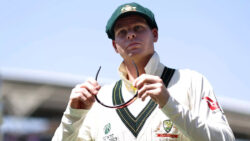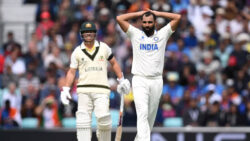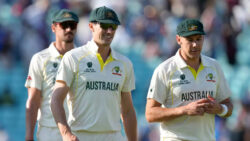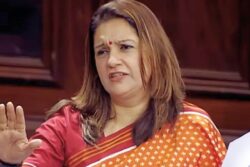Cricketers have too much power: Eric Simons
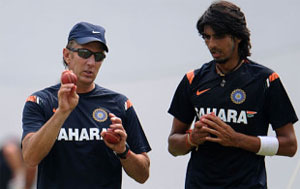
Bangalore: When the Delhi Daredevils were knocked out of the fifth edition of the Indian Premier League, it came as no surprise that Eric Simons was the one answering the media’s heated questions. Why was Morne Morkel left out? Where did Sunny Gupta come from? Not for the first time in his career Simons, as coach, was left carrying the can. When South Africa limped out of the 2003 World Cup following a bizarre misreading of the Duckworth-Lewis par scores, Simons was back in the spotlight, as though he was solely responsible for what happened. Not long ago, every time Ishant Sharma overstepped, television cameras would frame Simons, the bowling coach, allowing the commentators to have a rant. It’s no surprise that Simons has strong and independent views about what a coach’s role in cricket is and where he’d like to see it go. Excerpts from a chat with Wisden India:
 You’ve been part of the coaching set-up of two international teams. What attracted you to the IPL job?
You’ve been part of the coaching set-up of two international teams. What attracted you to the IPL job?
The franchise itself has values and objectives that appealed to me. We have an amazing group of owners in terms of their attitude towards the game, towards the way we structure the team and what they want to achieve. That’s crucially important. What I really enjoyed as a coach was the different cricket cultures and how they worked together. This was important for me to learn, to grow and hopefully to instruct and teach as well.
You’ve had a successful career outside sport. In that sense, you don’t need to coach for money. What’s the biggest thing you’ve learned from your time in India?
It is something that I want to do, not have to do, from that perspective. The thing that I have learned the most… the way we do things in South Africa we’re probably a lot closer to the Australian way of doing things and maybe even the English way. We function too much on hype. I’ve understood that it’s not always about hype. It’s about calming your mind down and making decisions in the right mental place. In an Indian change-room, music will still be played before a game, but it’s more likely to be calming and soothing rather than motivating and hyping. In a South African change-room, it will always be about hype. Hype blows away in a few minutes. I often say that hype is like a cracker that explodes; a bonfire is something that lasts a while. You need to get players in a place where they’re not below the line of complacency and they’re not above the line of hype. Clear thought. That’s the most important lesson I’ve learnt. Indian cricketers understand this and strive to live in the now and function in the zone where the next delivery is the most important thing to think about. Bigger picture.
Cricket teams today have coaches for every discipline. Is there a risk that we’re compartmentalising things too much?
You need comparmentalisation when comes to specific skills. But I don’t think coaches are empowered the way they should be. That I think is the future that cricket needs to get to. You still talk about how it’s the captain’s team and he makes the selections. I don’t think it should function like that. Cricket doesn’t need to move as far as football, where the coach runs the show, but the ICC needs to move to a place where the coach can communicate with players on the field when play is on. I have no idea why we don’t do that already. There’s talk about how this communication can be intercepted but this makes no sense to me. At the moment, you have a situation where if the coach is pushing a player and the player is not happy, the coach gets it in the neck and he disappears. That’s crazy. It’s ridiculous the power that lies with the players in cricket. People should recognise that a coach should have a greater role in decision-making and then he can live and die by his decisions. At the moment, the coach is targetted and focussed on when there’s a struggle.
A senior Indian player once told me, “Eric’s a wise man. There’s not much about life he hasn’t seen.” Is this how you see yourself?
I am what I am. If someone sees me as wise, then that’s what it is. I always stress the fact that I don’t coach cricketers, I coach people. My interest lies in people and who they are and what they’re about. So, maybe, a lot of conversations I have with guys is about things like that in a broader sense. I have a very lateral thinking mind in the way that life works and I ask some strange questions sometimes to see what reactions I get and to test myself. Cricket coach is what I do, it’s not what I am.
In some ways, is the IPL a laboratory of sorts within which there’s room for a coach’s role to be explored?
What owners need to do is to bring in a coach whose vision they understand and then back him. It is a place where owners can trust their coach. In world cricket, the processes that you have can be quite cumbersome. There are state sides who vote and people who move up administration and everyone has a power stake. It’s not possible for a country to appoint a coach and let him run with it. In the IPL, it can be a lot clearer and cleaner. I keep coming back to football… for seven years, Manchester United were not successful under Alex Ferguson but the owners bought into his vision and stuck with him and see where they are today. The IPL is a place where something like that can happen. I saw an interesting dynamic in the IPL when players came back to owners and said “Please buy me.” Suddenly we saw the balance of power shift. I don’t think the owners of IPL teams fully understand the power they have. The IPL could be a place… It’s pushed and stretched the game in so many different areas.
The IPL has also changed how selection happens. In a country set-up, it’s all about 3-5 selectors who make the call…
There are several interesting dynamics playing out in the IPL that are unique to the tournament. One is that some players are playing for enormous sums of money and that is added pressure. People who invested the money in them, it’s not just about picking the best players but also justifying the price tag. That is a burden that some players bear with great difficulty but others seem to flourish with it. On the other hand, you have international stars for whom selection has never been an issue. They are going to be playing. Suddenly you can only play four foreigners and this puts extra pressure on the players from a selection perspective.
International teams spend so much time together that the players often refer to the team as a family. How is this different in the IPL?
Managing the IPL is part of the challenge as a coach. We have 28 guys and there’s a large group that aren’t a part of the immediate family. They are important to us and we tell them this and it’s not lip service. We have situations where a squad player is injured and you have to call up someone from the extended squad. You have to have people ready but for weeks on end, they can feel excluded. Making them feel a part of the family is very important. It comes down to how the coach manages people. If the communication is good, there shouldn’t be too many areas of surprises for the players or the coach. The sport is often let down by the honesty of communications. Every now and then, these reviews come out and all the things that should be said during the year come out at the end of the season. That makes no sense to me. Why not say it when it needs to be said and deal with it when you can? In the IPL, you have a shorter period of time. With a national side you have more time to grow together and come to know each other. You can hide an aspect of yourself for eight weeks, but you can’t over two years.
Are players honest enough with themselves about what they can do and what they can’t?
I have a few things that I believe are critical in players. One of them is being honest with yourself. The moment you blame someone else for something, it means you can’t do anything about it yourself – it’s their problem, it’s their fault. When you internalise the problem and take ownership of it, it gives you a chance to do something about it. Players who are able to take responsibility for themselves and their performance will be successful for an extended period of time. That comes, I believe, from the fact that the power basically lies with the player. A coach in many cases has to influence players rather than instruct them. Instruction is not a bad thing if it comes from the right place.

